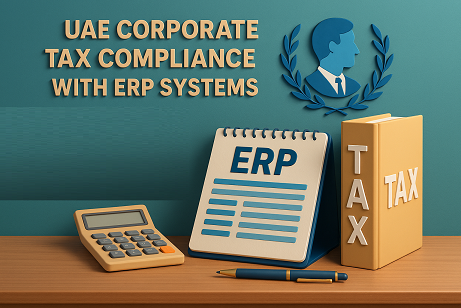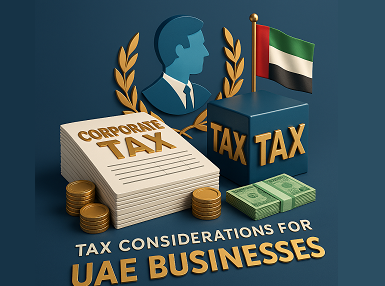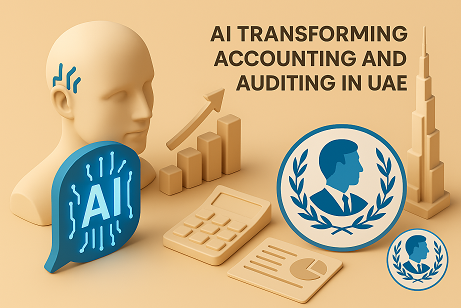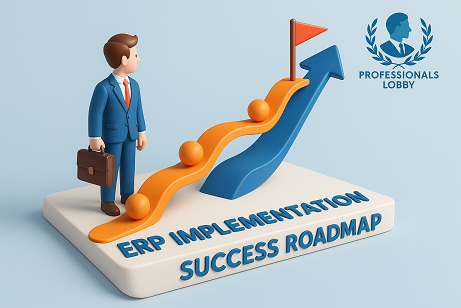With the UAE's corporate tax implementation since June 2023, businesses need robust systems to ensure compliance. Enterprise Resource Planning (ERP) solutions play a crucial role in automating tax calculations, generating reports, and maintaining audit trails. This comprehensive guide explores UAE corporate tax regulations and how modern ERP systems help businesses streamline compliance while optimizing tax positions.
Key Takeaways
- UAE corporate tax applies at 9% for taxable profits over AED 375,000
- ERP systems automate tax calculations and compliance reporting
- Proper ERP configuration reduces audit risks and penalties
- AI-powered tax optimization is becoming a key ERP feature
- Localized ERP solutions offer better UAE tax compliance out-of-the-box
Quick Navigation
UAE Corporate Tax Overview
The UAE introduced federal corporate tax effective for financial years starting on or after June 1, 2023. Here are the key aspects businesses need to understand:
Key Dates & Deadlines
Key Compliance Considerations
Tax Grouping
Businesses can form tax groups for consolidated filing if they meet ownership and financial year alignment criteria.
Transfer Pricing
Arm's length principle applies to transactions between related parties and connected persons.
Free Zones
Qualifying Free Zone Persons can benefit from 0% tax rate on qualifying income.
Documentation
Businesses must maintain records for 7 years to support tax positions and filings.
How ERP Systems Support Corporate Tax Compliance
Modern ERP solutions provide comprehensive tools to manage corporate tax obligations efficiently. Here's how they help UAE businesses:
Automated Tax Calculations
ERP systems automatically calculate taxable income based on configured rules, applying the correct rates and thresholds.
FTA Reporting
Generate ready-to-file tax returns and supporting schedules in FTA-required formats.
Tax Group Consolidation
Automatically consolidate financials across entities for tax group reporting.
Transfer Pricing
Track and document related party transactions with built-in transfer pricing tools.
Document Management
Central repository for tax-related documents with retention period enforcement.
Audit Trail
Comprehensive change logs and audit trails for all tax-related transactions.
Real-World Example: Manufacturing Group
A UAE-based manufacturing group with 3 entities implemented SAP S/4HANA for corporate tax compliance:
Essential ERP Features for Tax Compliance
When evaluating ERP systems for corporate tax management, look for these critical features:
Flexible tax engine that can handle UAE corporate tax rules including:
- Progressive tax rates (0% up to 375K, 9% above)
- Free zone qualifying income rules
- Tax group consolidation logic
- Exemptions and deductions
Pre-configured reports matching FTA requirements:
- Corporate Tax Return (CTR) form
- Tax computation schedules
- Transfer pricing documentation
- Tax group allocation reports
Tools to manage and document related party transactions:
- Automatic identification of related parties
- Arm's length price calculation
- Intercompany reconciliation
- Master file and local file generation
Advanced systems use AI to:
- Identify tax saving opportunities
- Predict tax liabilities
- Detect anomalies in tax data
- Recommend optimal tax positions
Features to simplify audits and ensure compliance:
- Change tracking with timestamps
- User access controls
- Document retention policies
- Audit trail reporting
ERP Tax Feature Comparison
| Feature | Basic ERP | Mid-Tier ERP | Enterprise ERP |
|---|---|---|---|
| UAE Tax Configuration | Basic | Advanced | Comprehensive |
| FTA Report Templates | Standard | Customizable | |
| Transfer Pricing | Basic | Advanced | |
| Tax Group Consolidation | Multi-level | ||
| AI Tax Optimization | |||
| Audit Tools | Basic | Standard | Comprehensive |
Top ERP Systems for UAE Corporate Tax Compliance
Comparison of leading ERP solutions and their corporate tax capabilities for UAE businesses:
SAP S/4HANA
Strengths
- Comprehensive tax engine with UAE localization
- Advanced transfer pricing module
- AI-powered tax analytics
- Global compliance capabilities
Considerations
- High implementation cost
- Complex configuration
- Requires expert consultants
Best for: Large enterprises with complex tax requirements and international operations.
Oracle NetSuite
Strengths
- Cloud-based with automatic updates
- Strong multi-entity consolidation
- Good tax reporting capabilities
- Real-time tax dashboards
Considerations
- Limited Arabic interface
- Requires customization for UAE specifics
- Subscription model can be expensive
Best for: Mid-sized businesses wanting cloud flexibility and good tax reporting.
Microsoft Dynamics 365
Strengths
- Strong UAE localization
- Power BI tax analytics
- Good document management
- Microsoft ecosystem integration
Considerations
- Tax module requires add-ons
- Limited transfer pricing tools
- Complex licensing
Best for: Microsoft-centric organizations wanting integrated tax reporting.
Focus 9 ERP
Strengths
- Built specifically for UAE market
- Arabic/English interface
- Pre-configured FTA reports
- Affordable pricing
Considerations
- Limited international features
- Basic transfer pricing tools
- Smaller support network
Best for: UAE-focused SMEs needing locally-adapted tax compliance.
Odoo ERP
Strengths
- Open-source flexibility
- Modular tax add-ons available
- Cost-effective
- Active developer community
Considerations
- Requires customization
- Limited out-of-box UAE tax features
- Partner quality varies
Best for: Tech-savvy SMEs wanting customizable, low-cost solutions.
Implementing ERP for Tax Compliance
Successful ERP implementation for corporate tax requires careful planning and execution:
Tax Requirement Analysis
Document all tax scenarios, reporting needs, and compliance requirements specific to your business.
ERP Selection
Choose an ERP system that matches your tax complexity, business size, and industry needs.
Tax Configuration
Set up tax codes, rules, and reporting structures in the ERP system with expert guidance.
Data Migration
Transfer historical tax data with proper mapping to new ERP tax structures.
Testing & Validation
Thoroughly test tax calculations and reports before going live.
Training & Go-Live
Train users on tax processes and transition to the new system.
Professionals Lobby Recommendation:
"For UAE businesses implementing ERP for corporate tax compliance, we recommend starting with a tax-focused gap analysis. This identifies where your current systems fall short and what ERP capabilities you need. Many businesses underestimate the complexity of tax group reporting and transfer pricing documentation - ensure your ERP selection addresses these critical areas."
Need Help With ERP Tax Configuration?
Our ERP tax specialists can guide you through system selection, implementation, and compliance.
Schedule Free ConsultationAdditional Resources
FTA Corporate Tax Guide
Official Federal Tax Authority guide to UAE corporate tax regulations.
Download PDF


